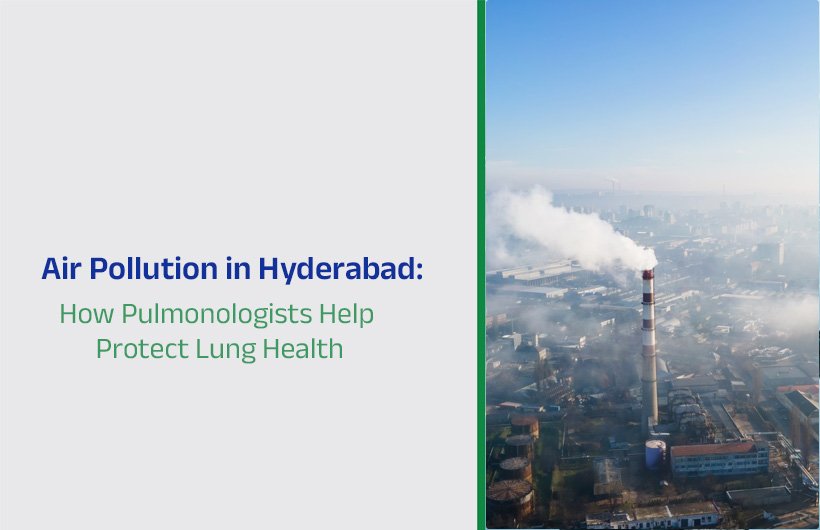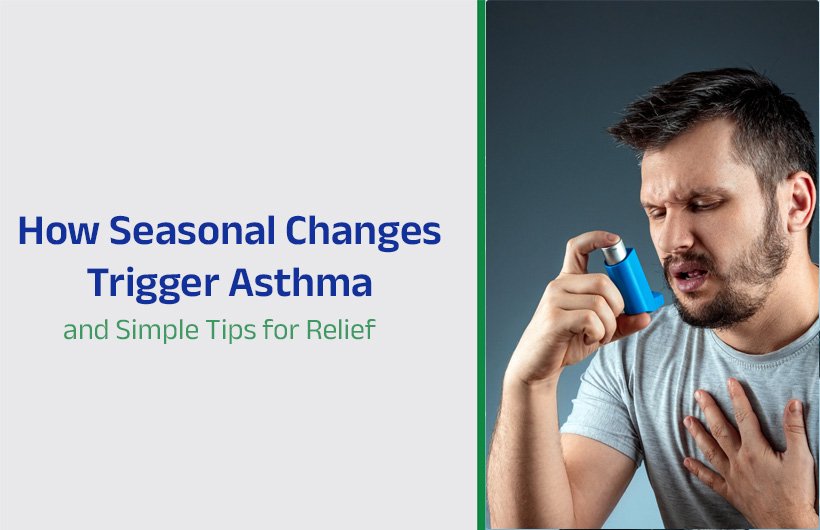Air pollution has become one of the biggest health challenges in modern cities, and Hyderabad is no exception. With increasing traffic, industrial activities, and seasonal changes, the quality of air continues to affect daily life. What many people don’t realize is how deeply these pollutants impact lung health. From mild breathing discomfort to long-term respiratory diseases, the consequences are serious. This blog will help you understand the effects of air pollution on the lungs, recognise symptoms, and learn how to protect your lungs with expert advice from the best pulmonologist in Hyderabad, Dr. Kunal Waghray.
Understanding Air Pollution
Air pollution refers to the presence of harmful particles and gases in the air that we breathe. Common pollutants include particulate matter (PM2.5 and PM10), nitrogen dioxide, sulfur dioxide, carbon monoxide, and ground-level ozone. In urban areas like Hyderabad, vehicle emissions and construction dust contribute heavily to poor air quality.
When these pollutants enter the respiratory system, they irritate the lungs, damage lung tissues, and reduce overall oxygen intake. People with existing respiratory issues, children, and the elderly are particularly vulnerable. Prolonged exposure can even lead to chronic conditions such as asthma, chronic obstructive pulmonary disease (COPD), and in some cases, lung cancer.
Symptoms and Health Effects
The effects of air pollution on the lungs may vary depending on exposure levels and individual health. Some common symptoms include:
- Persistent cough or throat irritation
- Shortness of breath or wheezing
- Chest tightness or discomfort
- Increased mucus production
- Fatigue due to reduced oxygen supply
For individuals with asthma, pollution can trigger frequent attacks. Children often experience recurring respiratory infections, while older adults may notice worsening of pre-existing lung or heart conditions. Studies show that long-term exposure to polluted air increases the risk of decreased lung capacity, making everyday activities more difficult over time.
A lung health specialist in Hyderabad often sees patients whose conditions worsen during the winter months, when smog levels rise and trap pollutants closer to the ground. Recognizing early symptoms and seeking timely care can prevent further damage.
Pulmonologist’s Advice on Managing Air Pollution Effects
According to Dr Kunal Waghray, a leading pulmonologist in Hyderabad, prevention and early management are the keys to maintaining healthy lungs in polluted environments. He emphasises the importance of monitoring air quality and avoiding unnecessary exposure during high-pollution days. Patients with existing respiratory issues should follow their treatment plans carefully and consult a specialist at the first sign of worsening symptoms.
Dr Waghray also highlights the value of regular lung check-ups. Pulmonary function tests can detect changes in breathing capacity, helping doctors recommend personalised treatments. For those with asthma or COPD, carrying prescribed inhalers and medications is crucial to prevent sudden flare-ups.
Vaccinations against respiratory infections like influenza and pneumonia can also play a protective role, as polluted air weakens the body’s defenses, making infections more likely.
Lifestyle and Home Tips
While it may be impossible to completely avoid exposure to pollution, small lifestyle changes can go a long way in protecting your lungs:
- Track Air Quality Index (AQI): Before heading out, check the AQI levels. If the air quality is poor, try to stay indoors, especially during morning and evening traffic hours.
- Use Masks Wisely: Wearing a good-quality N95 mask can filter out harmful particles and reduce the risk of inhaling pollutants.
- Improve Indoor Air Quality: Use air purifiers at home, especially in bedrooms. Keeping indoor plants like aloe vera and spider plants can also help in maintaining cleaner air.
- Stay Hydrated: Drinking plenty of water helps the body flush out toxins and keeps the airways moist.
- Practice Breathing Exercises:
Exercises to Strengthen Your Lungs, including pranayama, help increase lung capacity, promote better oxygen flow, and relieve stress from polluted air. - Balanced Diet: Foods rich in antioxidants, such as fruits, vegetables, nuts, and seeds, help combat the harmful effects of free radicals caused by pollution.
- Avoid Indoor Pollutants: Reduce the use of incense sticks, cigarettes, and chemical sprays inside the house, as they add to indoor pollution.
- Ventilation with Care: On days with poor air quality, keep windows closed during peak hours to avoid pollution entering the home. On cleaner days, ventilating properly brings in fresh air.
Conclusion
Air pollution is a constant concern for city dwellers, but adopting the right habits can significantly reduce its impact on your respiratory health. Recognising early signs of lung issues, following medical advice, and incorporating diet and lifestyle tips for healthy lungs are essential steps for long-term protection. Experts like Dr Kunal Waghray, a trusted Pulmonologist & Critical Care Specialist in Hyderabad, provide personalised guidance to improve lung function and overall well-being. By making small, consistent changes in your daily routine, you can safeguard your lungs, enhance your quality of life, and breathe easier every day. Book an appointment today for healthy lungs.






